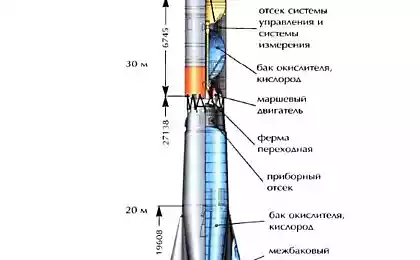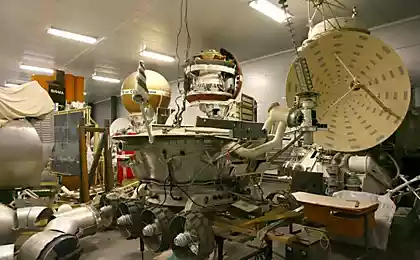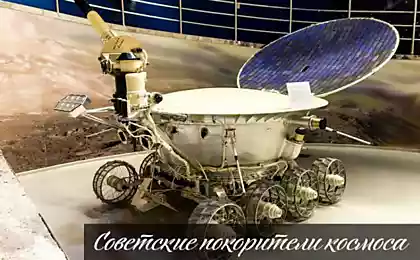605
As the "sounds" space

Sound - a physical phenomenon that is elastic waves propagating in a particular environment. In a narrow sense, a sound understanding vibrations perceived by the hearing of animals and humans. The tympanic membrane in our ear detects high air pressure changes, as the brain processes the received signal.
In space, we do not hear anything, because there is not a suitable environment for the spread of sound. However, we learn, if not far from our planet will supernova - an "explosion" is the result of deformation of the Earth's atmosphere by light
. However, when it comes to electromagnetic oscillations, that a person is not able to perceive, then transform it into an audio format can provide interesting and valuable results. For example, in this NASA video processed received signals from different planets:
On Geektimes have already talked about the NASA account in the SoundCloud, opens the door to the world of "space" sounds (eg, digitized recording sounds with "Voyager" gold plate was published), and resulted in a synthesized voice recording with Venus as an example of what can be recorded on the planet's surface.
But back to the "sounding planets." Radio waves emitted by celestial bodies, can be read using a special device - interferometer
. The interferometers are widely used in astronomy for the creation of radio and optical telescopes with high resolution. An example is the giant radio telescope the ALMA, consisting of more than 66 antennas distributed over a large area, which receives radio waves emitted by astronomical objects.
The principle of the astronomical interferometer is the following: Suppose that two antennas are directed toward the body space X. Since radio waves travel in space at a constant speed, the radio waves from the object X of delayed reached a certain distance from each other antennas at different times. After that, the signals of two antennas can be prointerferirovat and isolated from the resulting signal the desired information about the source.
Optical telescopes, like our eyes, imperfect and allow monitoring only in the visible light range. ALMA also has been specifically designed for the registration of long waves. Because of this, scientists were able to look into the most distant corners of the universe, hidden from our eyes by clouds of gas and cosmic dust.
The International Space Station - this is another project, which aims to expand our knowledge of the cosmos. And here's an interesting question, and the sound of the ISS? Experts involved in the training of astronauts for flight to the station, they say that everything sounds exactly the same as on Earth.
The International Space Station itself is made up of modules, and its interior space reminiscent of the narrow corridors of the cylindrical shape. Total 14 modules, each of which are research laboratories, utility rooms, warehouses, berths, simulators.
In this connection, the ISS is quite noisy place: the fans constantly blows air across the station. All this is reminiscent of a few dozen "overloaded" the computers processes whose coolers are rotated at a breakneck pace and create a sufficiently strong hum.
In addition to fans on the ISS there is still a large number of pumps, compressors and other devices that make sounds, such as a special space simulator ARED, in which the artful system of cylinders, levers and drives provides loads of up to 600 kg. The astronauts have to train and raise the bar in normal space uncomfortable, and useless.
The noise level at the ISS range from 58 to 72 decibels (maximum 80). Of course, all of the station sound different: the noise level at the ISS can be estimated from the video below (note how the sound changes on 24 minutes when the transition to the Russian space module)
. If you do not like tours of the station, especially for you Astronaut Chris Hadfield (Chris Hadfield) uploaded to SoundCloud multiple audio tracks recorded in different parts of the ISS. Moreover, he even recorded a song, accompanying himself on the guitar.
Many musical compositions are able to accurately convey a sense of space and plunge us into cosmic mood in seconds. Someone thinks that the largest number of cosmic associations connected with David Bowie songs. Listening to them, you seem to go on a long journey.
Others are advised to pay attention to the classic works of Gustav Holst's "The Planets»:
There are more interesting options:
Or «Inception» application, which told Wired:
P.S. More material on the topic of audio -. Our blog "World Hi-Fi"
Source: geektimes.ru/company/audiomania/blog/274793/
Former Minister of Finance of Greece in favor of the introduction of an unconditional income in Switzerland
SpaceX will try again to put the Falcon 9 stage of an offshore platform























